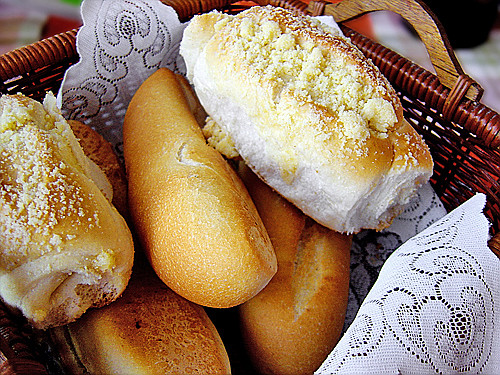Ministers, when God gives them a good time in their studies, and they read the Word and it opens up before them, should keep notes of what comes to them. The wind does not always blow alike, and it is well to grind your wheat when the mill will work. You should put up your sails, and let your barque fly along when you have a good, favoring breeze, and this may make up for dead calms. Economically put by the fragments that remain after you have fed next Sunday’s congregation, that there may be something for hard times when your head aches, and you are dull and heavy in pulpit preparations.
From a sermon by Charles Haddon Spurgeon entitled "The Miracle of the Loaves." Image by Renata Diem on Flickr under Creative Commons License.

No comments:
Post a Comment